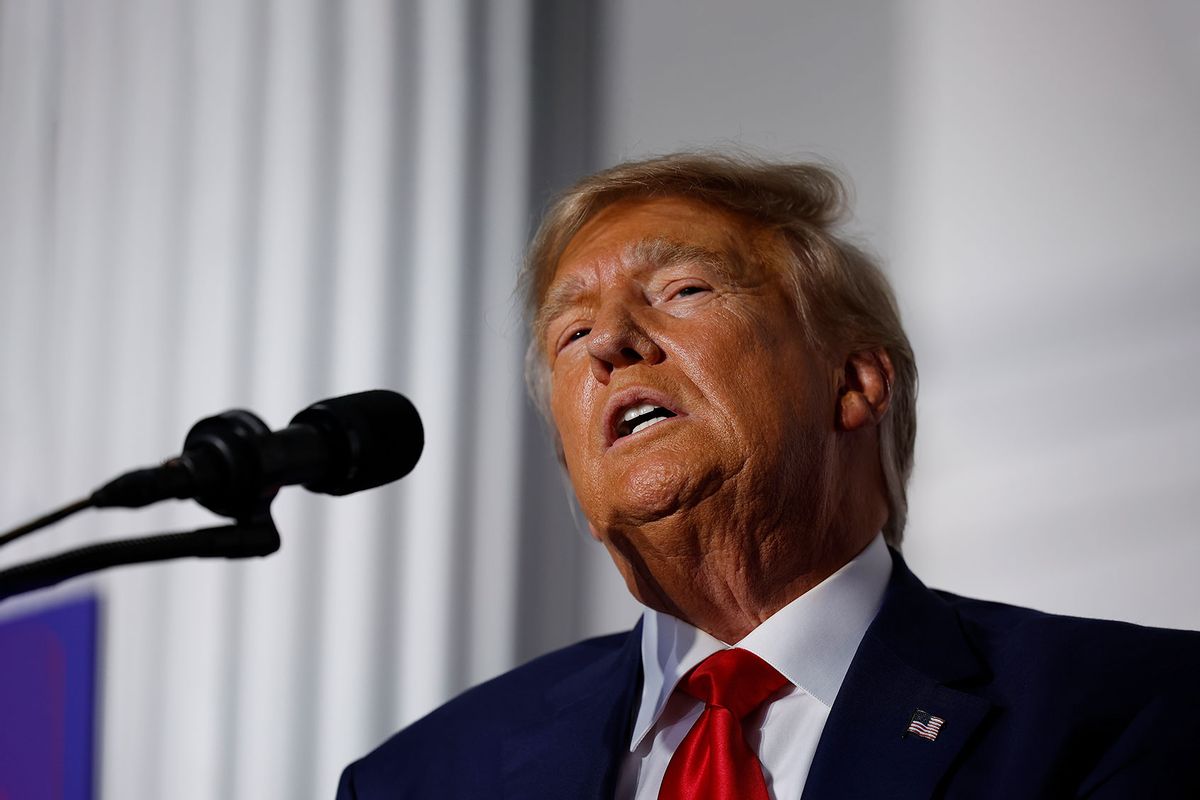Donald Trump claims that he is being unfairly targeted for retaining documents from his tenure while others who engaged in similar actions have avoided legal repercussions. But legal experts say the former president's case differs in key ways, which compelled prosecutors to pursue federal charges against him.
A day after he was indicted on 37 counts related to stashing documents at Mar-a-Lago and obstructing government efforts to retrieve them, Trump said that President Bill Clinton kept audiotapes in a sock drawer and a court said it was okay.
"Under the Presidential Records Act — which is civil, not criminal — I had every right to have these documents," Trump said in a speech Tuesday night. "The crucial legal precedent is laid out in the most important case ever on this subject, known as the Clinton socks case."
But legal experts have argued that there are stark differences between the two cases and Trump's interpretation of the law, which is not referenced in the charges against him, is incorrect and goes against the intent of the law itself.
"Trump isn't charged with any violations of the Presidential Records Act," former Assistant U.S. Attorney William "Widge" Devaney told Salon. "Trump is charged with having secret and top secret information, refusing to turn it over, obstructing the government's attempts to turn it over and causing people to lie about those records. I mean, it's really apples and oranges."
For months, Trump has discussed the "Clinton socks case," recently writing on his social media platform, Truth Social, "Under the Clinton Socks Case, the decision is clear. There was no crime, except for what the DOJ and FBI have been doing against me for years."
The Presidential Records Act says that presidential records belong to the government, not the individual who served as president, clarified former U.S. Attorney Barb McQuade, a University of Michigan law professor.
Trump's description of the case also appears inaccurate. Trump has held the government accountable for the case when instead, the case was filed by a private conservative activist group, Judicial Watch.
The group filed a lawsuit against the National Archives and Records Administration to obtain access to audio recordings of extensive interviews conducted by historian Taylor Branch with Clinton during his White House tenure. Clinton was reported to have stored the audio tapes in his sock drawer.
Clinton kept the tapes, which documented an oral history of his White House tenure. These tapes formed the foundation for Branch's book titled "The Clinton Tapes: Wrestling History with the President," published in 2009, according to Vox.
"Clinton's recordings were from his own interviews, qualifying as diaries, which the Presidential Records Act says are not presidential records," McQuade said. "No law precludes Clinton from keeping them."
Judicial Watch argued the audiotapes qualified as "presidential records" and should be released by the agency in accordance with the federal public records law.
But U.S. District Court Judge Amy Berman Jackson ultimately dismissed the case, stating that NARA lacked the authority to confiscate the records from Clinton and transfer them to Judicial Watch, Vox reported.
National security attorney Bradley Moss told CNN on Wednesday that the judge in the ruling allowed Clinton to keep his recordings because the National Archives let him take them from the White House and hadn't issued a demand for their return.
However, intelligence on nuclear weapons programs would never have been designated as personal records that could be removed from the White House, he added.
"Trump is charged with violating the Espionage Act, not the Presidential Records Act," McQuade pointed out. "The records Trump is alleged to have illegally retained are agency records, such as records of the CIA, NSA, and Department of Defense, not presidential records."
She added that retention of these records is covered by the Espionage Act "because of their content — information about the national defense, which information could be used to the injury of the United States or advantage of a foreign nation."
On top of this, Trump ignored a subpoena requiring him to turn over highly classified material and engaged in repeated efforts to obstruct the government's efforts to retrieve the documents.
Want a daily wrap-up of all the news and commentary Salon has to offer? Subscribe to our morning newsletter, Crash Course.
But that hasn't stopped Trump from drawing irrelevant parallels and bringing up Bill Clinton, his 2016 Democratic rival Hillary Clinton, vice president Mike Pence and even President Joe Biden.
All four of them have been questioned about the retention of records pertaining to their public service, but none of them refused to comply with the government.
There's a difference between their actions compared to Trump's, Devaney said, pointing to Trump's intent and actions with how he behaved after he had the documents in his possession.
Trump's recent indictment alleged that he tried to convince his attorneys to lie to authorities about federal documents and repeatedly enlisted aides to help him hide records requested by investigators.
"The people who aren't criminally charged or aren't charged at all in these cases are the ones who accidentally removed classified information," Widge said. "They cooperate with the government in its investigation and return of the information. It demonstrates that they had no intent to remove or further disseminate any type of classified information."
Read more
about the Trump indictment
- Expert: Inability to find new lawyer leaves Trump without expert to handle Espionage Act charges
- Ex-DOJ official sounds the alarm: Judge Cannon's lack of experience is "reason enough" to remove her
- "That is not a defense": Ex-Mueller prosecutor says Trump's post-arrest speech was a "confession"
- Legal experts destroy Trump's defense: "Every single iota of evidence" came from his "own people"
- Donald Trump still thinks he can escape this — but Jack Smith has him cornered



Shares